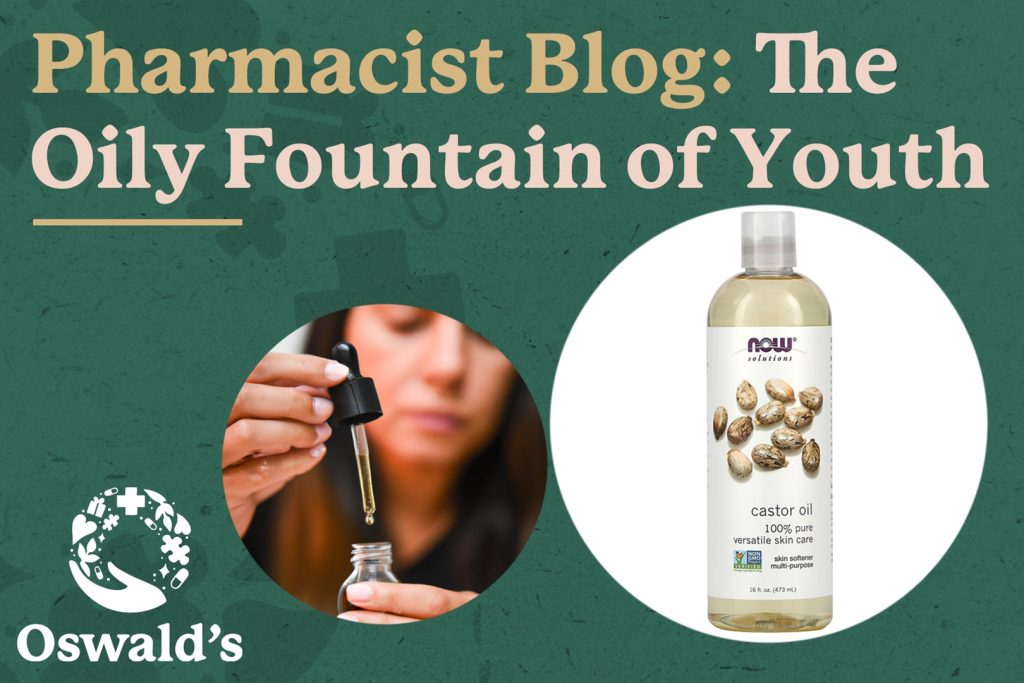Castor oil has long been used as a natural remedy for constipation, and I have used it in soap-making to create a more luxurious lather for my bar soap. In the recent past, castor oil has been all over the internet being hailed as the miracle cure for aging skin, healing acne, and even treating arthritis. I wanted to look into these claims to decide if castor oil is something I should add to my skincare routine or if it is something I can recommend to others looking for a more natural remedy for their skin or other ailments. So, is castor oil a true miracle cure (or the “oily” fountain of youth) or just a fad that will soon be forgotten?
Castor Oil & Fatty Acids
Castor oil is a vegetable oil pressed from the seeds of the castor bean plant and is comprised of 4 types of fatty acids. The most prominent of the fatty acids is ricinoleic acid, making up 85% to 95% of the composition, and this fatty acid is what makes castor oil so special. Ricinoleic acid has been studied and found to have potent anti-inflammatory, antimicrobial, and antioxidant properties.
Ricinoleic acid has been studied comparing its use to both capsaicin for inflammation and NSAIDs for arthritis of the knee. In both cases, ricinoleic acid was found to be as effective or more effective than its competitor in relieving both pain and inflammation. Also, ricinoleic acid has antimicrobial properties, which may make it useful in treating acne topically. For those who may be concerned about putting an oil on acne skin, you may be relieved to know that on the comedogenicity scale (how likely a product is to clog pores), castor oil rates a 1 out of 5, meaning it has a low chance of clogging pores leading to further breakouts.
Castor oil can, however, cause skin irritation in some people, so I would recommend trying it on a small area of the skin first and diluting it with a carrier oil. Lastly, ricinoleic acid is a strong antioxidant. Antioxidants prevent premature aging by attaching to damaging compounds in the body and neutralizing them so they can’t wreak havoc. Along with its antioxidant properties contributing to more youthful skin, castor oil is also a humectant, meaning it draws moisture to the skin, keeping it hydrated and the barrier strong.
Recommending Cator Oil
After concluding my research, I feel confident recommending castor oil topically to help with arthritis or other inflammation and to add moisture and a more “youthful” glow. I would avoid ingesting castor oil, even for constipation, as there may be more gentle options available, and I would avoid castor oil in pregnancy due to the possibility of labor induction. It may not be the fountain of youth, but I do think that castor oil is useful and here to stay.


